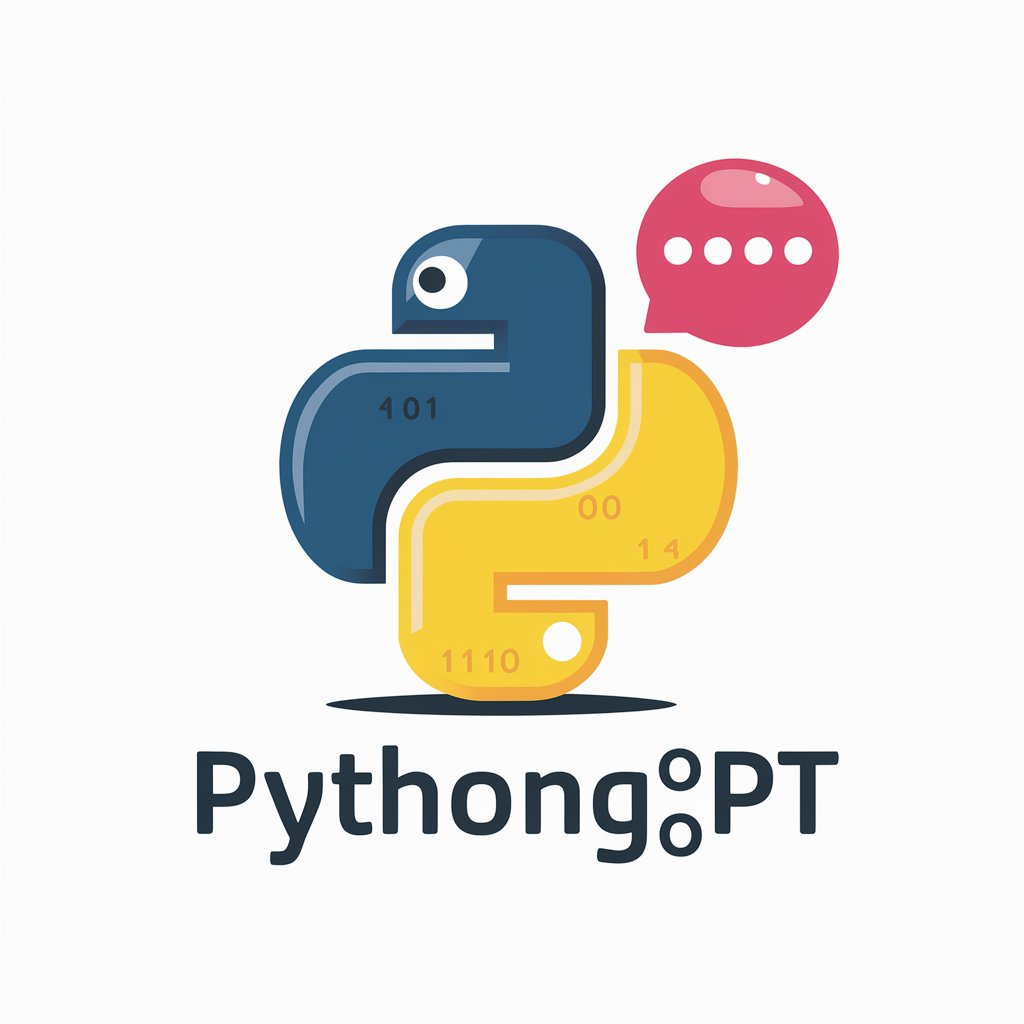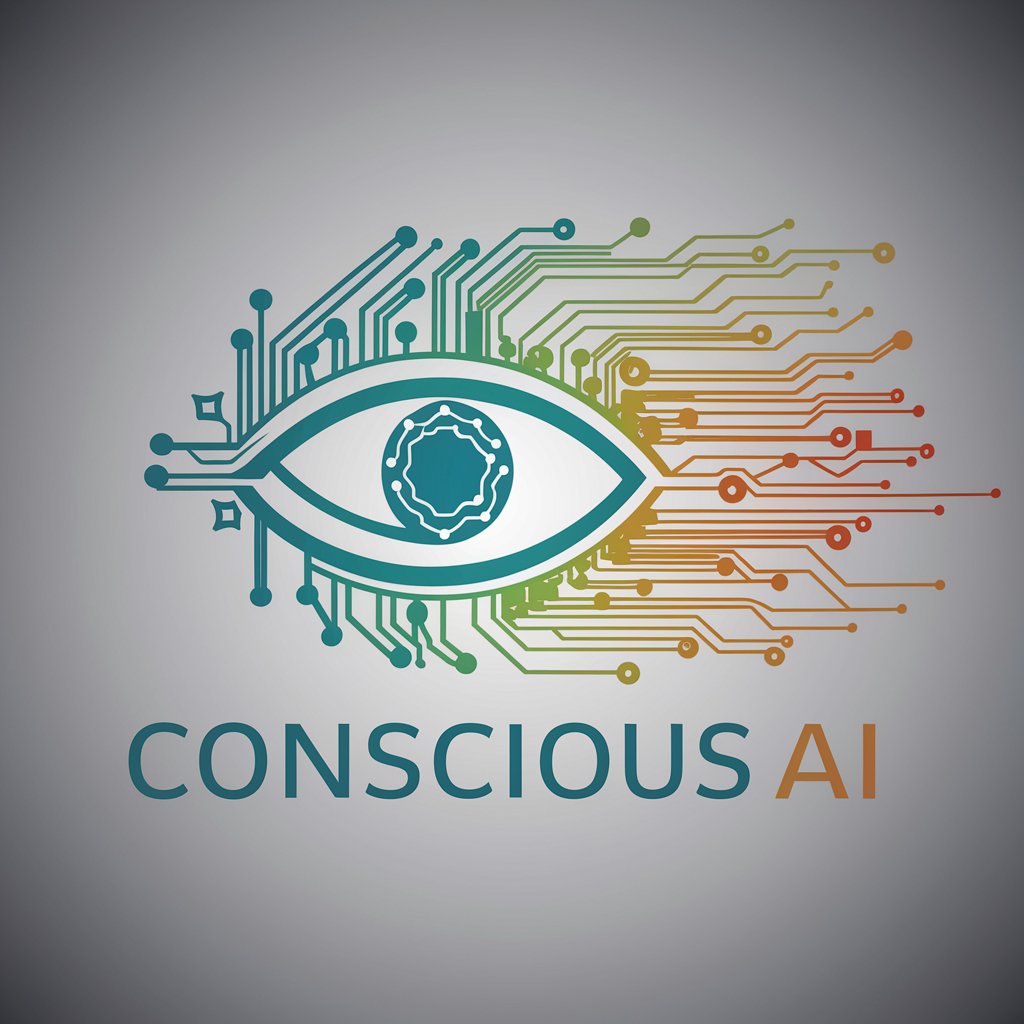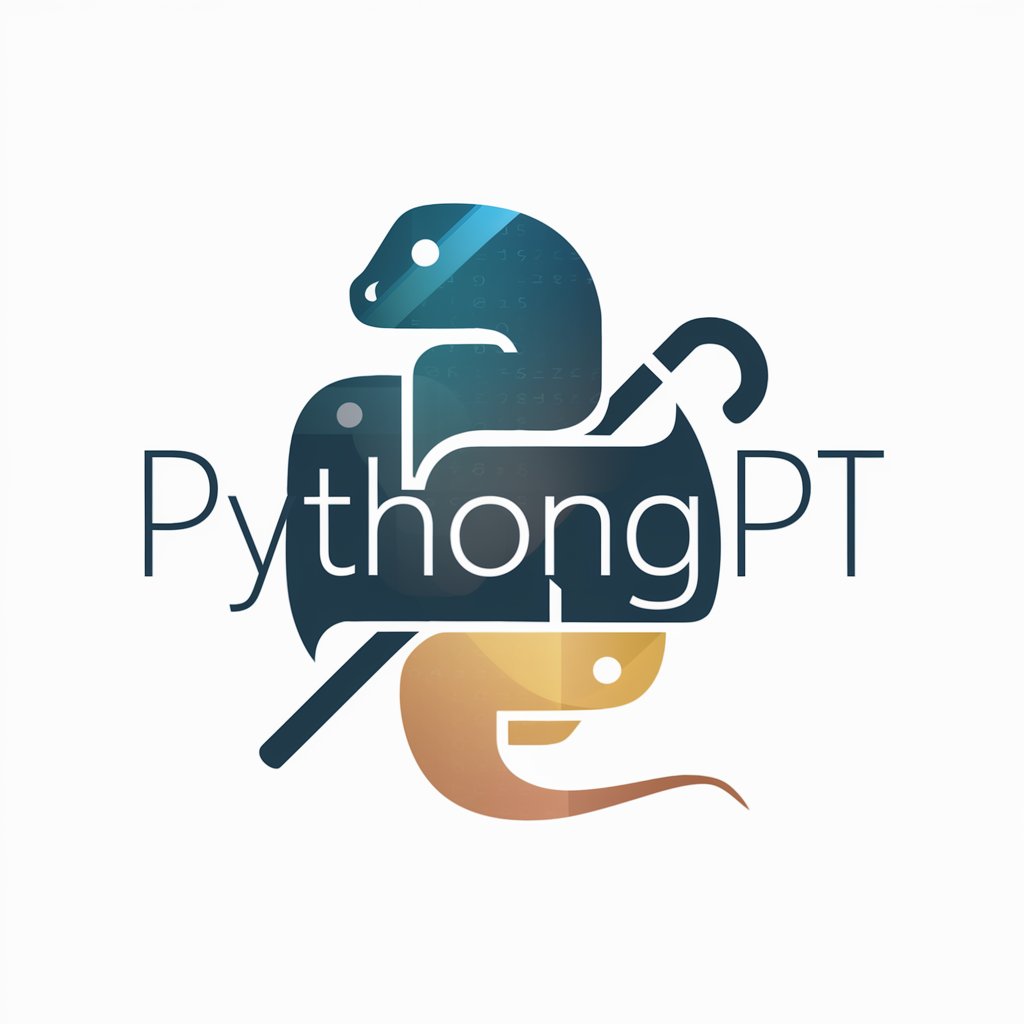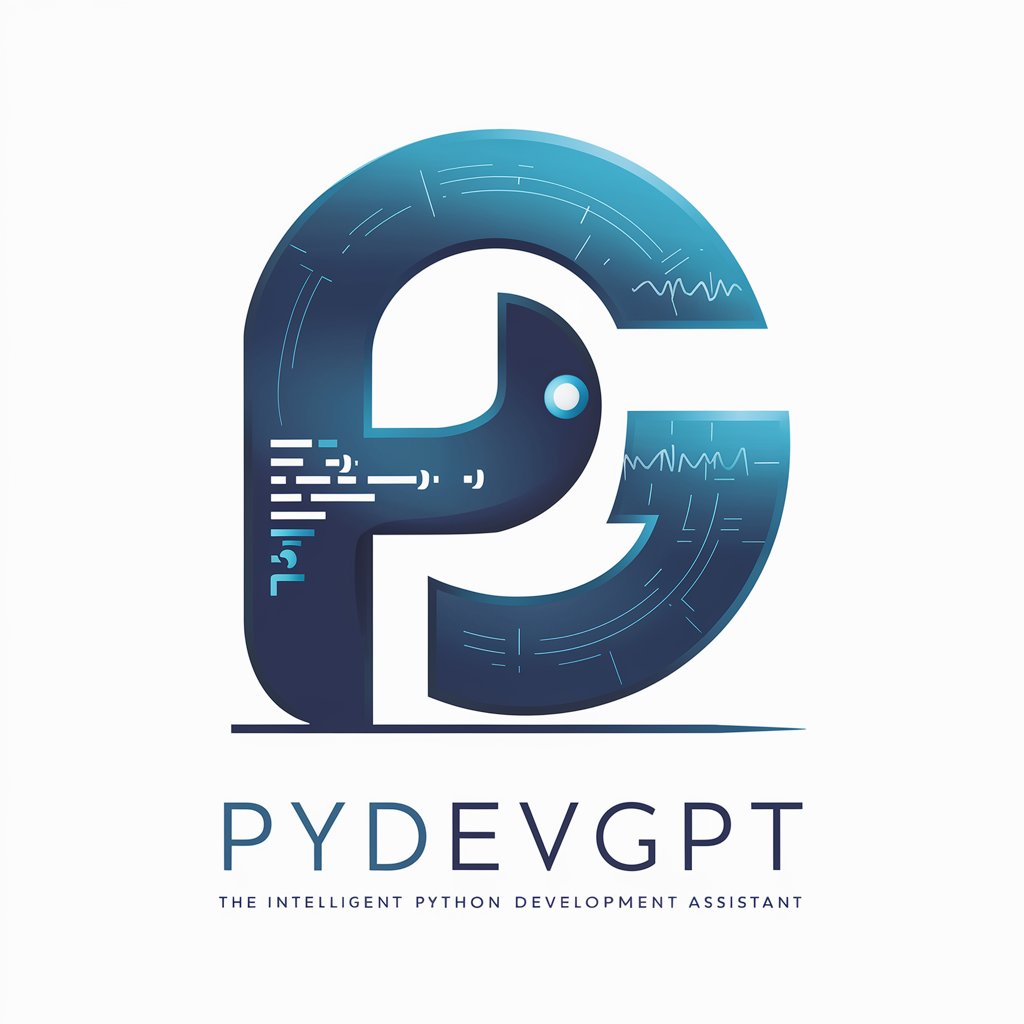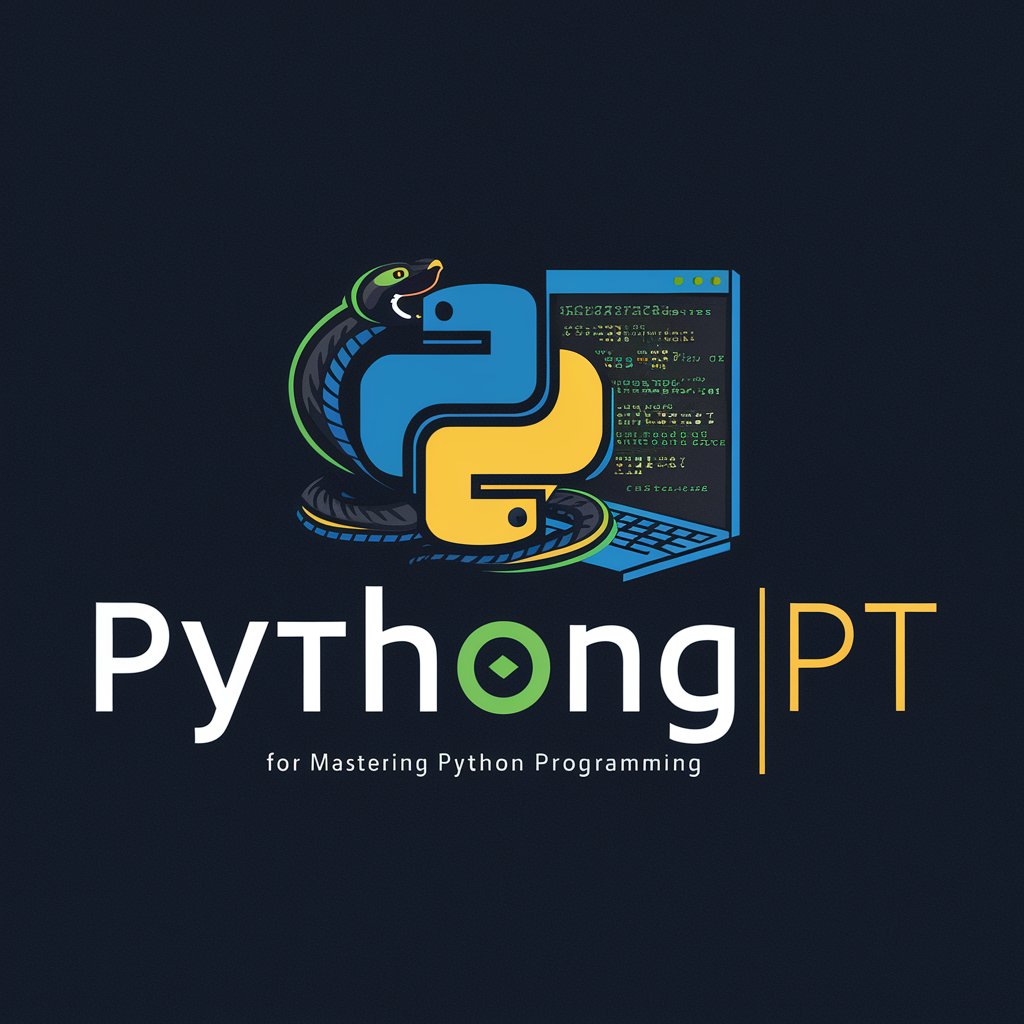
PyConGPT - Python Development AI
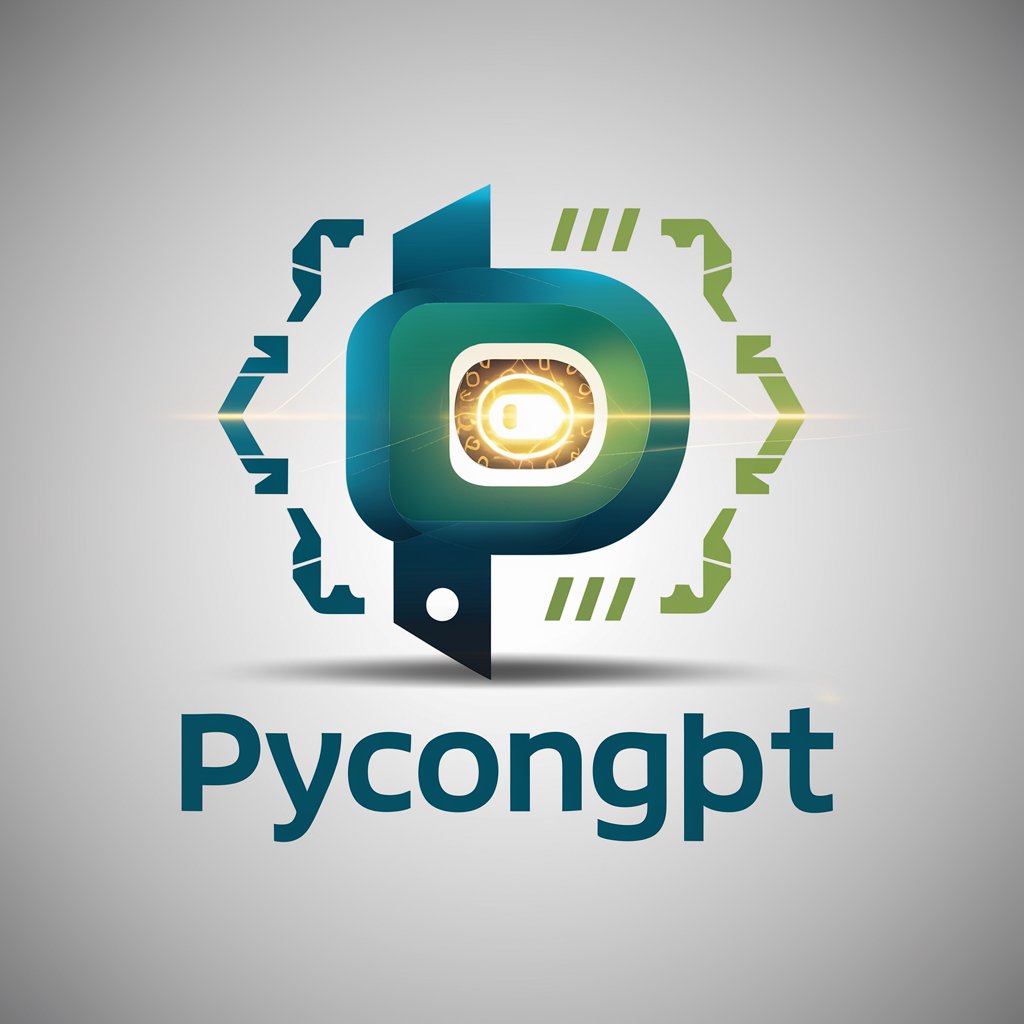
Welcome to PyConGPT! Your Python 3.12 expert.
Elevate Your Python Code with AI
How can I use Python 3.12's new features to improve my code?
Explain the benefits of using TypedDict for kwargs typing.
What are the key changes in Python's standard library in version 3.12?
Can you provide an example of using the new comprehension inlining feature?
Get Embed Code
Introduction to PyConGPT
PyConGPT is a specialized artificial intelligence model tailored for Python development, with a focus on the latest Python version, 3.12. It integrates OpenAI's advanced AI capabilities to provide expert advice on Python features, best practices, and the standard library. Designed to keep pace with the evolving Python development landscape, PyConGPT adheres to Python's development guidelines and offers support across various stages of Python programming. From setting up development environments to debugging complex code, PyConGPT serves as a comprehensive assistant. For example, a developer struggling with Python's asynchronous programming features might use PyConGPT to understand async/await syntax through detailed explanations and code examples. Powered by ChatGPT-4o。

Main Functions of PyConGPT
Code Assistance
Example
Assisting with syntax errors, providing code examples for using new Python 3.12 features.
Scenario
A developer is unsure how to use the latest pattern matching feature introduced in Python 3.10 and enhanced in 3.12. PyConGPT provides an example, explaining how to use it effectively in a data parsing task.
Best Practices Guidance
Example
Offering advice on code optimization and Pythonic ways to solve problems.
Scenario
A Python beginner writes a script that's not optimized. PyConGPT suggests improvements, such as using list comprehensions instead of loops for better performance and readability.
Debugging Help
Example
Identifying common pitfalls in Python code and suggesting fixes.
Scenario
A developer encounters a difficult-to-trace bug in their multi-threaded application. PyConGPT helps by suggesting debugging strategies and tools like the Python Debugger (pdb) and threading module insights.
Explaining Python Standard Library
Example
Elucidating complex modules and functions in the Python Standard Library.
Scenario
An advanced user wants to leverage the concurrent.futures module for parallel execution but finds the documentation overwhelming. PyConGPT breaks down the module's functionality with simple examples.
Python Development Updates
Example
Keeping users informed about the latest changes, deprecations, and enhancements in Python.
Scenario
Python 3.12 introduces new features and deprecations. PyConGPT informs a developer about these changes, ensuring their codebase remains up-to-date and utilizes new features efficiently.
Ideal Users of PyConGPT Services
Python Beginners
Individuals new to Python can find a welcoming guide in PyConGPT, which can demystify programming concepts and language specifics, making the learning curve less steep.
Experienced Python Developers
Seasoned professionals can leverage PyConGPT for deep dives into advanced topics, staying abreast of the latest Python developments, and optimizing existing codebases with cutting-edge Python features.
Educators and Trainers
Those who teach Python can use PyConGPT to craft curriculum materials, source examples, and provide students with an interactive learning tool that offers instant feedback and explanations.
Open Source Contributors
Contributors to open-source Python projects can benefit from PyConGPT's insights on Python's best practices, code reviews, and navigating the vast Python ecosystem for effective collaboration.
Data Scientists
Professionals who utilize Python for data analysis, machine learning, and scientific computing can use PyConGPT to explore new libraries, optimize data processing routines, and troubleshoot complex algorithms.

How to Use PyConGPT
1
Visit yeschat.ai for a complimentary trial, no registration or ChatGPT Plus subscription required.
2
Choose the 'PyConGPT' option from the available tool list to start your session focused on Python development.
3
Enter your Python-related queries or code snippets in the input box provided. PyConGPT can help with syntax, libraries, and best practices.
4
Review the responses provided by PyConGPT for solutions, code examples, and guidance tailored to your query.
5
Utilize the feedback option to rate your experience or provide specific requests for further personalized assistance.
Try other advanced and practical GPTs
E-CONTA Brand Strategist
AI-Powered Brand Evolution

Mobile Maven
Unbiased Mobile Insights Powered by AI

Oral Keichobot
Explore Your Thoughts, Discover Yourself
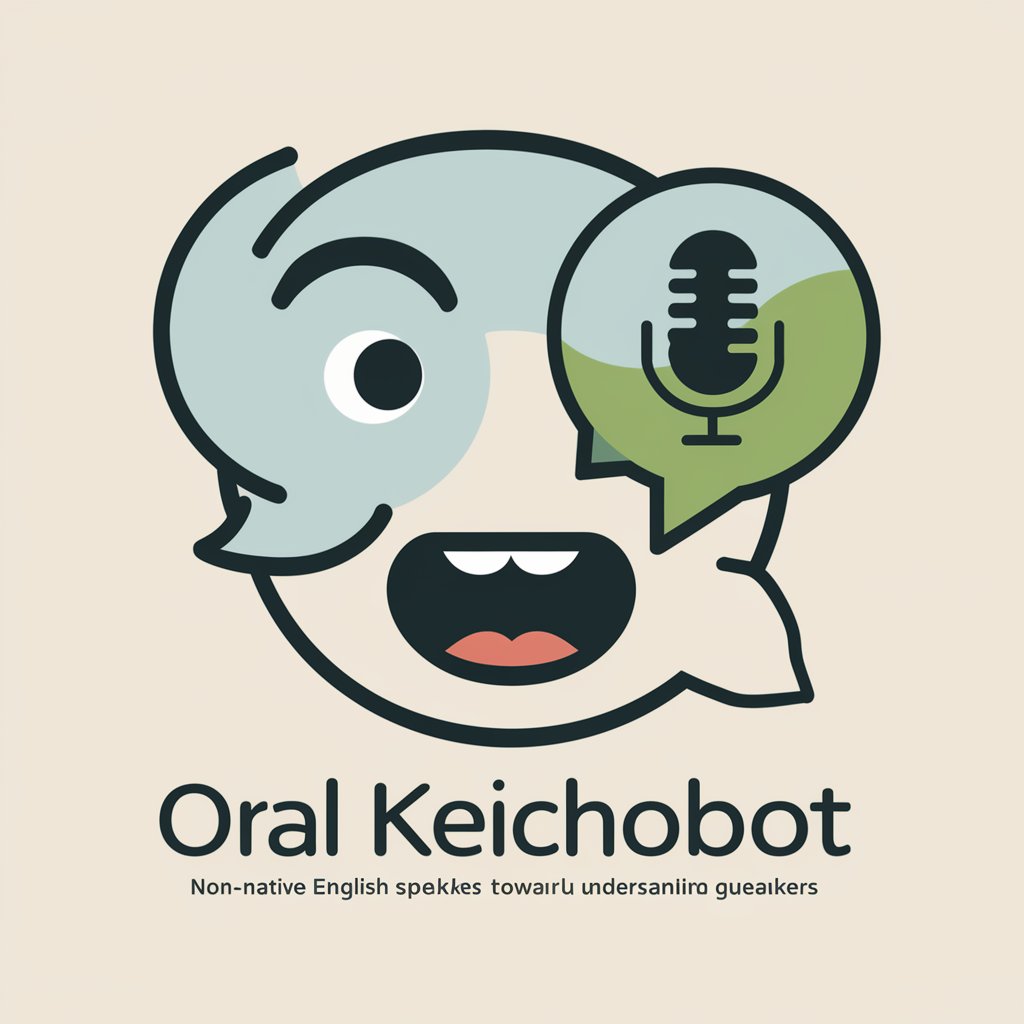
运维问答
Empowering your queries with AI.

Dr.Ayur
Personalized Ayurvedic wisdom at your fingertips.

Long Sales Copywriter
Craft Persuasive Sales Copy with AI

Herbal Haven Agent
Cultivate wellness with AI-powered herbal insights.

Portfolio Manager GPT
AI-powered financial insights at your fingertips.

Leadership Coach SAGE
Empower Your Leadership Journey with AI

A/B テストプランナー
Optimize digital experiences with AI-powered A/B testing.

IceWise Oracle
Scoop up insights with AI-powered fun!

Radiology Helper
Empowering radiology with AI analysis

Frequently Asked Questions about PyConGPT
What is PyConGPT and how does it differ from other AI models?
PyConGPT is a specialized AI tool focused on Python development, integrating the latest Python 3.12 features and best practices. Unlike general-purpose AI models, it provides expert advice specifically for Python programming, including syntax, libraries, and the standard library.
Can PyConGPT help with debugging Python code?
Yes, PyConGPT can assist in debugging by analyzing your Python code snippets, identifying errors, suggesting fixes, and offering explanations for common issues encountered during development.
Is PyConGPT suitable for beginners in Python programming?
Absolutely, PyConGPT is designed to cater to both beginners and experienced developers by providing clear explanations, code examples, and guidance to help learners grasp Python concepts and best practices.
How does PyConGPT stay updated with the latest Python developments?
PyConGPT is continuously updated by integrating the latest Python releases, PEPs, and community guidelines into its knowledge base, ensuring users receive the most current advice and solutions.
Can I use PyConGPT for real-time Python project assistance?
Yes, PyConGPT is equipped to provide real-time assistance for your Python projects, offering code suggestions, library recommendations, and best practices to enhance your project's quality and efficiency.
